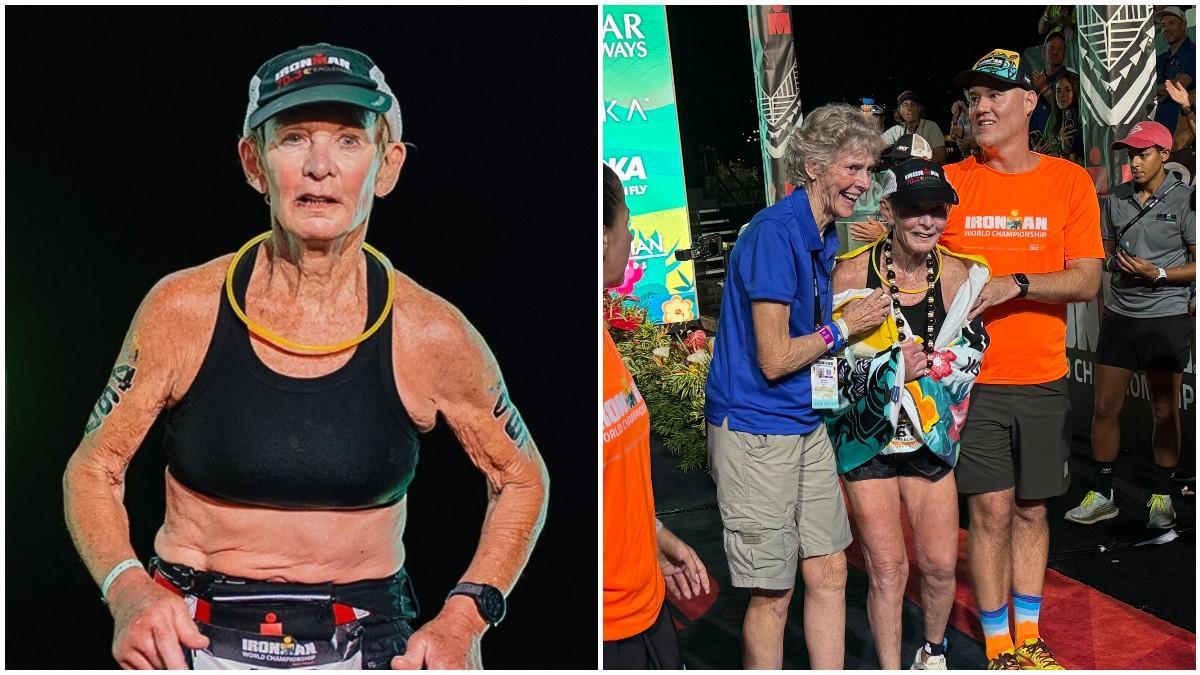Discover the crucial vitamins runners need for peak performance and recovery. Learn about vitamin D, B-complex, C, E, and other essential nutrients that can enhance your running potential and prevent deficiencies.
Did you know that up to 75% of endurance athletes may be deficient in at least one essential vitamin?
While runners focus intensely on their training schedules and mileage goals, many overlook the microscopic nutrients that could make or break their performance.
The intricate relationship between vitamins and athletic excellence extends far beyond basic nutrition.
These powerful micronutrients serve as the body's hidden performance enhancers, orchestrating everything from energy production and oxygen transport to muscle repair and bone strength making them indispensable allies in every runner's journey.
Why Vitamins Matter for Running Performance and Recovery
Proper nutrition plays a central role in running performance, with vitamins being key building blocks that support physical output and muscle repair.
These micronutrients help convert food into energy, maintain strong bones, support immune function, and repair muscle tissue after workouts.
Research shows that poor athletic performance directly affects endurance and stamina, helping runners maintain consistent performance levels during training sessions and races.
For athletes who put their bodies through regular physical stress, meeting daily vitamin D requirements becomes especially important for long-term health and athletic achievement.
Vitamin D
Vitamin D stands as a fundamental nutrient for bone health, regulating how the body processes Calcium and phosphorus, two minerals essential for bone formation and repair.
his becomes particularly relevant for runners who consistently put stress on their skeletal system through repetitive impact.
Research indicates runners need higher amounts than the standard daily recommendation: between 2,000 and 6,000 IU daily compared to the basic 600-800 IU.
Good sources include salmon, tuna, egg yolks, and fortified dairy products.
Beyond bones, this nutrient supports immune function, which matters significantly for athletes training outdoors in various conditions and needing strong disease resistance.
Vitamin D3 4000UI on Amazon
B Vitamins: B1, B2, B3, B6, B12, and Folate
B vitamin supplements serve as key players in energy production during running workouts. These nutrients help convert carbohydrates into glucose for fuel and support red blood cell production for oxygen delivery throughout the body.
Common food sources include whole grains, eggs, dairy, lean meats, and leafy greens.
Plant-based and vegan runners should monitor their B12 intake carefully, as this vitamin primarily comes from animal products.
Without proper B12 levels, athletes risk developing anemia and nerve damage that can significantly impact their running abilities.
Regular blood testing and appropriate supplementation can help maintain optimal B vitamin status for peak performance.
Vitamin B-Complex on Amazon
Vitamin C
Vitamin C strengthens immune function, which becomes essential during high-volume training when runners' defenses may be compromised.
This nutrient assists in producing collagen, supporting muscle and tissue repair after running sessions.
Its antioxidant properties work to decrease oxidative stress following workouts, potentially reducing muscle soreness and speeding up recovery times.
Good food sources include oranges, grapefruits, strawberries, bell peppers, broccoli, and dark leafy greens.
Many runners incorporate vitamin C supplements alongside other immune-supporting nutrients, particularly during intense training blocks or racing seasons.
Vitamin C 1000mg on Amazon
Vitamin E
Vitamin E functions as a powerful antioxidant that protects muscles during and after running. This nutrient helps limit free radical damage produced during intense exercise, potentially lowering inflammation and muscle strain.
For runners putting in high mileage, Vitamin E supports faster recovery between training sessions.
Natural food sources provide reliable ways to meet daily requirements. Almonds, sunflower seeds, hazelnuts, and plant oils like wheat germ oil contain high amounts. Some leafy green vegetables also supply this essential nutrient.
Many runners pair Vitamin E-rich foods with their post-workout meals to support muscle repair.
Vitamin E 1000UI on Amazon
Vitamin A
Vitamin A supports skin health, which matters for athletes who train outdoors in sun, wind, and rain.
This nutrient helps maintain skin integrity when exposed to different weather elements during training runs.
The vitamin also plays a key role in night vision, making it important for runners who train early morning or evening when light is limited. This helps athletes spot obstacles and maintain proper form in low-light conditions.
Good sources of Vitamin A and beta-carotene include orange vegetables like sweet potatoes and carrots, plus dark greens such as spinach and kale.
Many runners add these foods to their regular meal plans to support both performance and recovery.
Calcium
Calcium works with vitamin D to maintain strong bones and prevent stress fractures, a common concern for runners who put repeated impact on their skeletal system.
Beyond bone strength, this mineral acts as an electrolyte that regulates heart function and blood pressure during runs.
Since calcium depletes through sweat, runners need proper intake to avoid deficiency.
Adults under 50 should aim for 1,000 milligrams daily, while those over 50 need 1,200 milligrams.
Female athletes may benefit from 1,500-2,000 milligrams per day. Natural sources include dairy products, fortified plant-based milk alternatives, and leafy green vegetables.
Iron
Iron stands as a key mineral for runners, forming an essential part of hemoglobin that moves oxygen through the bloodstream.
Distance runners face higher risks of iron deficiency due to foot-strike hemolysis, where red blood cells break down from repeated impact during running.
To prevent runner's anemia, athletes can get iron through lean meats, beans, lentils, and fortified cereals. For better absorption, pair iron-rich foods with citrus fruits or bell peppers.
However, avoid consuming iron sources with coffee, tea, or dairy products, as these items can block proper absorption. Regular blood testing helps monitor iron status and maintain optimal running performance.
Zinc
Zinc promotes strong immune function and supports muscle repair two important factors for runners who train regularly.
Research shows this mineral assists in protein synthesis, helping muscles recover effectively between workouts.
Athletes can meet their zinc needs through common foods in a balanced diet. Good sources include:
- Lentils and chickpeas
- Pumpkin and sesame seeds
- Brown rice and quinoa
- Lean meats like chicken and turkey
Many runners track their zinc intake alongside other nutrients, as low levels may affect performance and recovery. Blood tests can confirm zinc status, particularly during high-volume training periods when nutrient demands increase.
High Potency Zinc on Amazon here
Nutritional Strategies for Runners
Meeting vitamin needs through training requires careful planning.
High-intensity workouts demand increased nutrient intake, while recovery periods need specific vitamins for muscle repair. While whole foods provide the best source of vitamins, some runners may need supplements during peak training.
The timing of nutrient consumption affects poor athletic performance. Taking carbohydrates and protein within 30-60 minutes after running supports glycogen restoration and muscle recovery.
Many athletes combine vitamin-rich foods with post-run meals - for example, pairing iron-rich foods with vitamin C sources improves absorption.
For long runs, runners often split their vitamin intake throughout the day rather than taking large doses at once, helping maintain steady energy levels and supporting continuous muscle repair.
Special Considerations for Different Types of Runners
Distance runners need higher amounts of B vitamin supplements and iron compared to sprinters due to prolonged aerobic activity.
Sprinters benefit more from minerals that support explosive power and quick muscle recovery.
Female runners require additional iron, particularly during menstruation, with recommended intake reaching 18mg daily compared to 8mg for male runners. Women athletes also need higher calcium levels to prevent bone density loss.
Plant-based runners should focus on vitamin B12 supplementation and iron from non-meat sources like legumes and fortified foods.
They can meet protein needs through combinations of nuts, seeds, and whole grains while monitoring vitamin D levels, especially if training primarily indoors.
Signs of Vitamin Deficiencies Runners Should Watch For
Runners experiencing frequent fatigue, slow recovery times, or repeated injuries should monitor their vitamin levels.
Common warning signs include:
- Muscle cramps and weakness (low magnesium, potassium)
- Frequent colds or infections (low vitamin C supplements, zinc)
- Stress fractures (insufficient vitamin D requirements)
- Unusual tiredness (low iron, B vitamins)
- Poor night vision (vitamin A deficiency)
- Slow-healing injuries (vitamin C shortage)
Regular blood tests help identify deficiencies before they affect performance. Most vitamin imbalances show early symptoms during training, when the body needs more nutrients than usual.
Addressing these signs promptly through diet adjustments or supplementation helps maintain running performance.
The Vital Role of Vitamins in Running Success
Understanding and maintaining proper vitamin levels isn't just about preventing deficiencies - it's about optimizing your running potential.
When runners align their nutrition with their training demands, they create a foundation for sustained performance and faster recovery.
The key lies in developing a comprehensive approach to vitamin intake through both diet and supplementation when necessary.
By treating vitamin nutrition with the same dedication as training plans, runners can unlock new levels of endurance, strength, and overall athletic achievement while maintaining long-term health.






.webp)